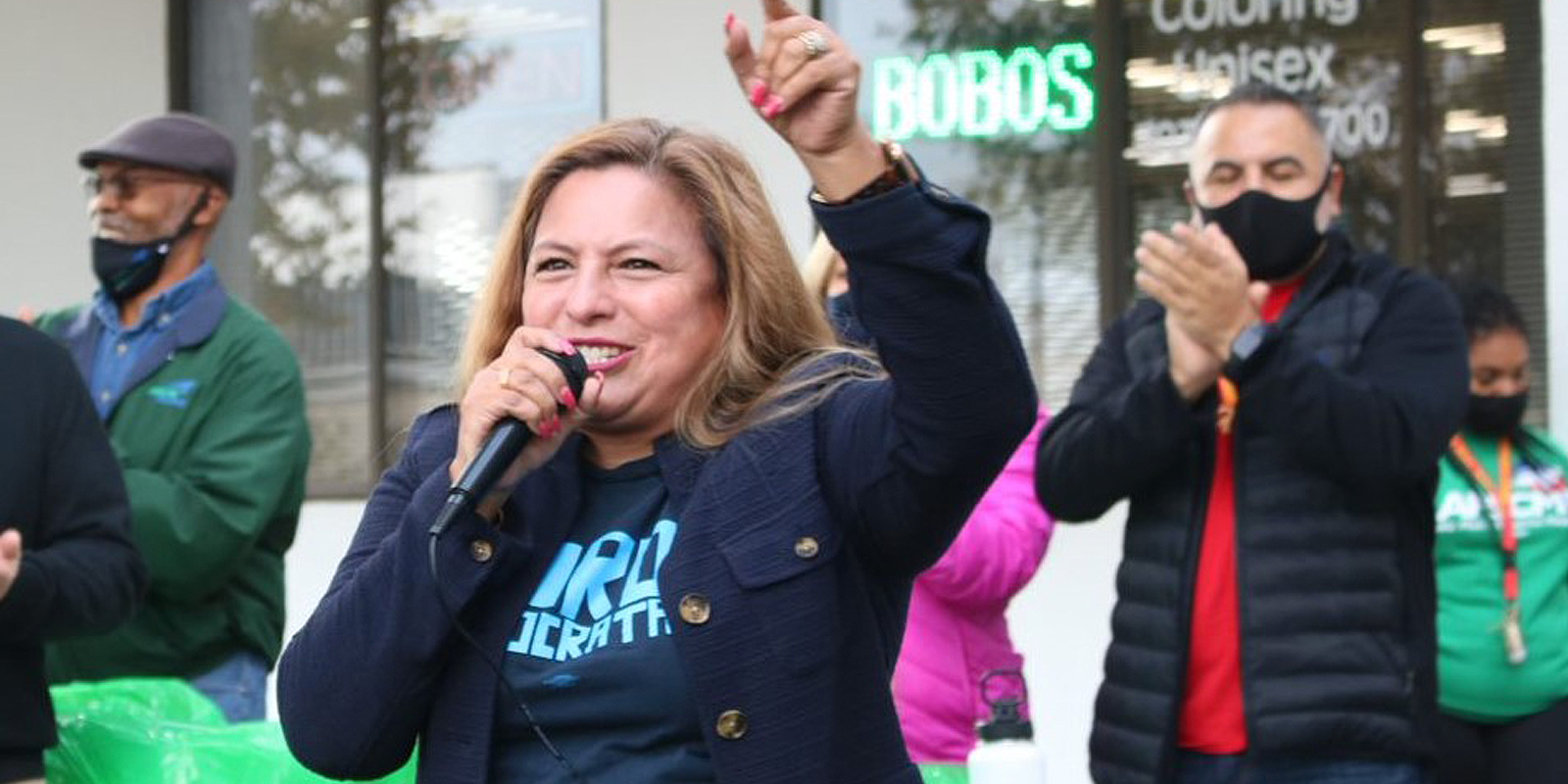Just a few months ago, I was knocking on doors in northern Virginia helping reelect social worker and AFSCME sister Elizabeth Guzman to her third term to the Virginia state legislature. And a few years ago, I was in Minnesota, canvassing for Kelly Moller, a county prosecutor and AFSCME member who was running for the first time to represent her neighbors in the Minnesota state legislature.
This is the type of volunteering that I love: talking to voters about the issues that matter to them and letting them know where the candidates stand. It’s even more satisfying when those candidates are union members.
Listening to voters and turning them out for elections is just one part of our political action program. There’s also the time-honored approach of using breaks at work to talk with co-workers. And there are new mobilization tools and tactics, like social media outreach, texting, and virtual phone-banking.
However we mobilize, AFSCME members are laser-focused on making our voices heard at every level of government. Those voices are even more powerful when AFSCME members themselves step up to run for public office.
It’s great to have elected officials who support workers, but it’s even better to have elected officials who are workers.
AFSCME activists make especially effective candidates. We’re already passionate about public service, we know the resources that our communities need, and we’re often in direct contact with our neighbors. Our union is full of local leaders who are skilled at relationship-building, listening, public speaking, and negotiations. Leading a local union is great preparation for succeeding in elected office.
Across the country, many AFSCME members serve as elected officials, from school boards to the U.S. Congress. Dozens more are running for the first time this year.
Once elected, they use their influence to move the needle on workers’ rights. Delegate Guzman was the driving force behind a new law enabling city and county workers to organize unions in Virginia. That’s a big deal in a state that, until 2020, banned collective bargaining for public employees.
Many people – especially women – don’t contemplate the idea of running for elected office unless they are asked. Well, I’m asking. Will you consider running for a public office in your city, county, or state, or ask an AFSCME leader in your local to run?
The stakes in this year’s elections couldn’t be greater. As we head into our third year of the COVID-19 pandemic, the services that our communities rely upon hang in the balance. We need key political decisionmakers who understand firsthand, at a gut level, why robust public services are so important.
There are plenty of resources available to first-time office seekers. We partner with several organizations that provide top-notch training for potential candidates. To participate, you don’t need to be sure you want to run, you just need to be curious about learning more. Right now, those trainings are more accessible than ever.
Remember: requirements for running for office vary by state and municipality. In some states, public employees are prohibited by law from seeking public office. Before running, start by checking your local and state election laws to see if you’re eligible. You should also reach out to local leaders to check city and state guidelines before seeking elected office.
While running for office isn’t for everyone, we can all get involved in state and local politics. You can knock on doors, talk to co-workers, and support pro-worker candidates. You can also join thousands of AFSCME members and retirees helping elect leaders who have our backs through contributions to the AFSCME PEOPLE program.
No matter what decision you make about running for office, I hope you will join me in getting out the worker vote for pro-worker candidates. Our lives and our livelihoods depend on it, and our communities are better for it.
